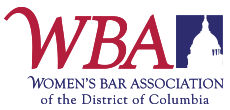
Dr. Jinling Wang is a Litigation Associate at the Devlin Law Firm, where she works on IP litigation in life science and other high-tech industries. She grew up in China and moved to Madison, WI for graduate school when she was 20 years old. Jinling’s hometown, Hefei, is a city with a more than 2,000-year history. It is now also a burgeoning research and technology hub. After graduating from college, USTC, a fine scientific institution, she entered UW-Madison for PhD work in biophysics, studying molecular and electrophysiological mechanisms of cardiac disorders.
Jinling says, “I am very grateful for the inclusive community of my program and the University. My work also connected me with a large national and international scientific community. I enjoyed the lovely city and very kind people.”
After graduate school, she moved to Pasadena and worked at Caltech, studying the mechanisms of affective disorders, including addiction. As work moved slowly forward (she worked on very difficult brain slice recording), Jinling started to think about what—other than experimental research—would motivate her.
After consulting friends and mentors, Jinling went back to school to study law at UC -Davis. She shares that “While I still enjoy and value science now, and still work with scientific and technological breakthroughs as a patent litigator, I am very happy with the legal work I do and glad that I made the transition. My law school, UC-Davis, King Hall, has an intimate program and a strong community that really made my transition easier. King Hall also has strong emphasis on public interest work, which I value much.”
After law school, Jinling returned to China and worked as a law professor for several years at a top Chinese law school in Shanghai. She says, “It was a unique experience where I reconnected with my home country and old friends. In my work, I did much research and policy work, often at a high level for the legislative needs of the government. But among all my work there, teaching was the most rewarding for me. With several colleagues from the U.K. & U.S., we helped build a Common Law program for Chinese law students, teaching systemically Common Law courses. When time came to return to the U.S. three years ago, I thought about DC. I liked the city from years ago, when I interned at the FDA Commissioner’s Office for Congressional work. I entered Intellectual Property Litigation work, which is challenging and enjoyable. In my work, I help generic companies securing approval for affordable drugs. Despite spending most of my past several years in the pandemic, I am glad that I have been feeling at home here. WBA has been one of the reasons.”
When did you join the WBA?
In 2021
In what committees/forums have you been involved?
International Law Forum – Co-chair
Why did you join the Women’s Bar Association?
I moved to DC not long ago from Shanghai, China. I practically knew no one in the city. I learned about WBA’s long history and accomplishments in advancing women in legal profession. I thought this would be the perfect community for professional connections and friendships. I am very glad that I joined.
What benefits do you get from being a part of the WBA and why do you think others should join?
A strong community of professional and personal connection and inspiration. A supportive community with great resources. Impressive programs for learning, advocacy, and networking. Here are some examples. I found a wonderful mentor, Kathryn Caballero, through the mentorship program. Last year, I was honored to be admitted to the Supreme Court Bar, sponsored by the WBA. I also remember the morning when the Dobbs decision came down—we were in the 2022 co-chair kick-off meeting. We had moments of sharing our thoughts and feelings. I really felt a sense of being at home then.
Do you have a mentor/hero?
My WBA mentor is Kathryn Caballero, who is the Co-chair of the Environmental Law Forum. Kathryn has taken time to talk with me regularly and I really appreciate her advice and encouragements.
I have benefited from many women in my professional and personal life. From my mother to pioneer neuroscientists to civil rights lawyers, they inspired me with their genuine passion, their calm persistence, their pursuit of the highest quality of work, and their generosity in mentoring young professionals.
What words of advice do you have for women new to the profession?
Do what you love – what you truly care and value. Keep yourself fully engaged. Seek out mentors and make friends. Be mindful that you may need to redirect your career path. When you do, embrace the new one, be patient and persistent.
What is the best advice you have received?
Be patient and be persistent. Trust yourself. Always take the high road.
In what other organizations are you involved?
I volunteer for DCVLP and help clients in domestic violence and immigration cases. I volunteer for ILSA to judge the oral arguments of Jessup Public International Law Moot Court Competition’s US and International rounds. I have also coached in the past. I enjoy the students very much and appreciate the good spirit of Jessup/ILSA community.
